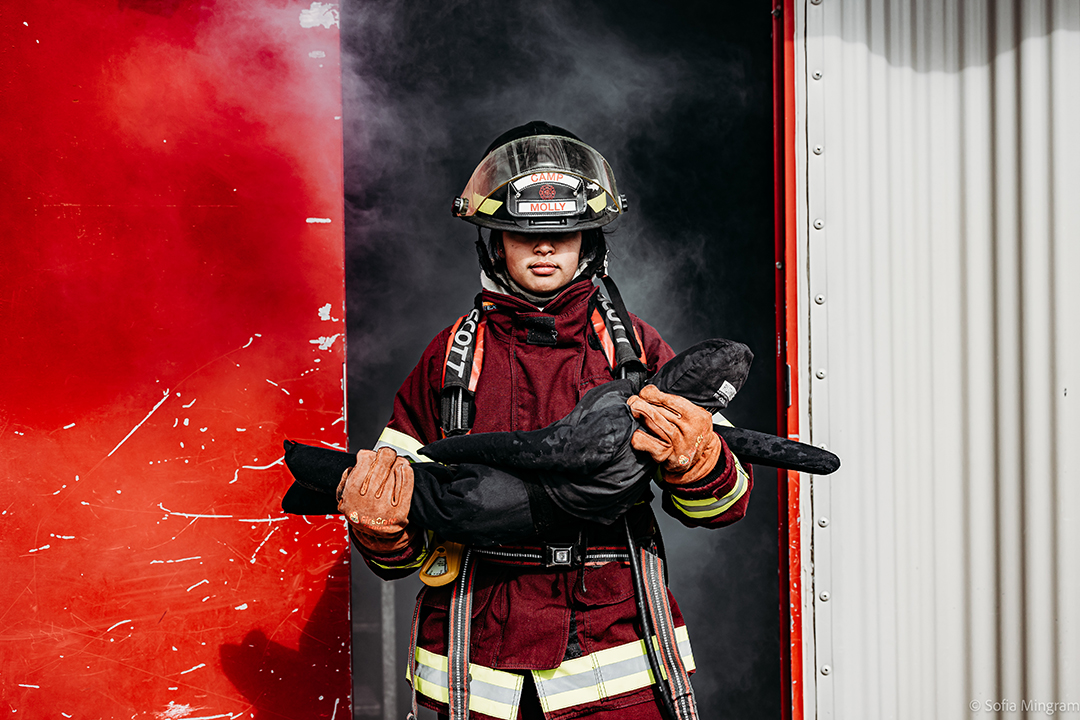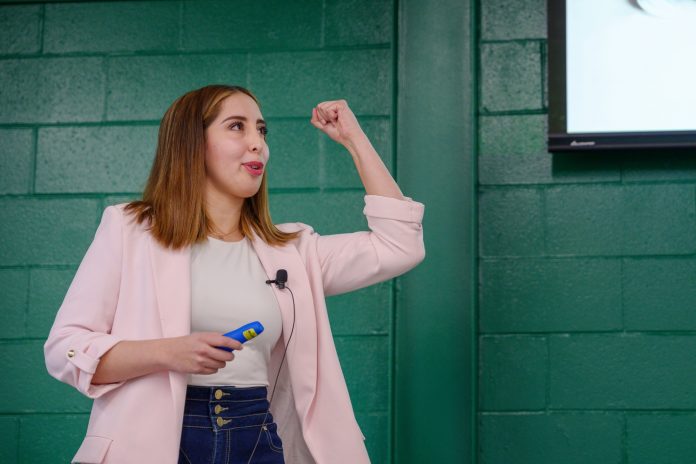Sofia has cherished the art of photography since her early childhood.
She said photography allowed her to “see people from a different angle and a vulnerable frame.” But she didn’t think about it as a business.
At the age of 17, Sofia and her family relocated from Mexico to Canada. She continued her passion for photography, now armed with a better camera she occasionally borrowed for her classes at Ajax High School.
Inspired by Mexican director Alejandro González Iñárritu, she applied to Toronto Metropolitan University for media production, but tuition was too expensive as an international student. There, her education in art had to stop.
With her mother’s support, she went to Durham College to pursue a marketing program and later found a job. Her photography laid dormant for a while, until the COVID-19 pandemic led her to make some “spicy decisions.”
Today, Sofia Mingram is an entrepreneur, adept in both photography and videography. She harnesses her passion for “capturing the present to preserve memories for the future” while she studies to save lives as a paramedic.

Mingram said she took the “leap” of starting her business during the pandemic because of two key events in her life at the time.
While employed at a large marketing firm in Toronto, whose name she withheld due to a non-disclosure agreement, a crisis unfolded. A colleague urgently needed help, but to Mingram’s dismay, others remained fixated on their screens.
“I was just like, ‘Guys, that person is one of us. That person could be you tomorrow, and, if someone is fixing a spreadsheet instead of helping you to feel better and called the paramedics, that could not be cool’,” she said.
According to Mingram, “the pressure of the corporate world became too intense,” and she couldn’t recharge with free time. Eventually, she made a mistake, one that cost the company thousands of dollars.
Mingram said she worked through the situation with her boss, and it took “a lot of therapy and a lot of debriefing to teach [her] that sometimes you make mistakes, and you don’t die.”
With the pandemic making her feel drained of creativity and trapped at work, Mingram said she decided to try doing photography for herself.
She said she went back to contacts she made in high school, where she developed her photography skills and asked for guidance.
“Thankfully I was surrounded by the right people who were also, as I found, motivating,” she said.
And having a supportive network, as Mingram did, is key, according to Patrice Esper, an advisor at the Business Advisory Centre of Durham (BACD).
“I think the biggest thing is to recognize you do not have to do it alone,” she said.
Esper said entrepreneurship is “thriving” in Durham “because the supports are there, the resources are there.”
The BACD offers coaching, workshops, and networking opportunities to residents, at no cost.
Summer Company, a program for student entrepreneurs to create a business during the summer break, provides up to $3000 in grant funding along with training to people between 15 and 29 years old.
Esper encourages young people to try entrepreneurship and “take a calculated risk” by starting a business. And Mingram said she did the math.
She calculated how much she would need to make to break even and set a goal of making the same amount of money her mistake cost her previous company.
Facing imposter syndrome, she said she got her first job filming four-minute corporate videos for high schools.
“I’m like, ‘My God, I am such an imposter,’” she said. “I’m already charging, and I know how to talk to people. But like the camera work and the technical aspect of things was driving me nuts because the learning curve was immense, and the deadlines were already there.”
Mingram pushed through and finished the job, and her clients loved it. She said they recommended her to another business, and she started filling her schedule with referrals.
“I was like, ‘Okay, if this whole business is like, I get paid, you recommend me to another person and then it’s a chain effect, I may be able to survive through this,’” she said.
Mingram ran her business for four years and hit her goal. She made the money she lost and built a successful business. Then she found another obstacle.
“Financially, things were going okay,” Mingram said, “but creatively I was just not feeling hungry to do something creative. I [felt] stagnant.”
Then, she said one of her colleagues surprised her by going back to school to become a paramedic. At first, she said she didn’t understand.
But one day, while out walking, she saw an elderly neighbour fall. Mingram said she rushed to help, talking with them and moving them to the shade until paramedics arrived.
When the ambulance came, Mingram said the medics were thankful, and she finally understood why her colleague decided to pursue the career.
The experience inspired her to follow a similar path. With the guidance of a former paramedic neighbour and her own research, she enrolled at Durham College and passed her first semester in the fall of 2023.
This year, she took another leap and participated in her first pitch competition with Durham College’s entrepreneurship centre, FastStart, in January.
Competing against 12 other entrepreneurs, Mingram placed third and won a $300 prize to help her grow her business.

Since starting her new program at DC, Mingram said she’s begun to realize how photography and paramedics can combine to preserve life and help others.
“It helped me to come to the conclusion that as a photographer, I captured the best times, or the best and worst, to help people to bring back the past into the present,” she said. “But as a paramedic, I’m able to provide at least an opportunity for people to still remain in the present.
“It just came to me. It came full circle of like, you know, preserving life and then capturing life. So, yeah, that’s how I found my eye. I guess that’s how I fill my cup.”




